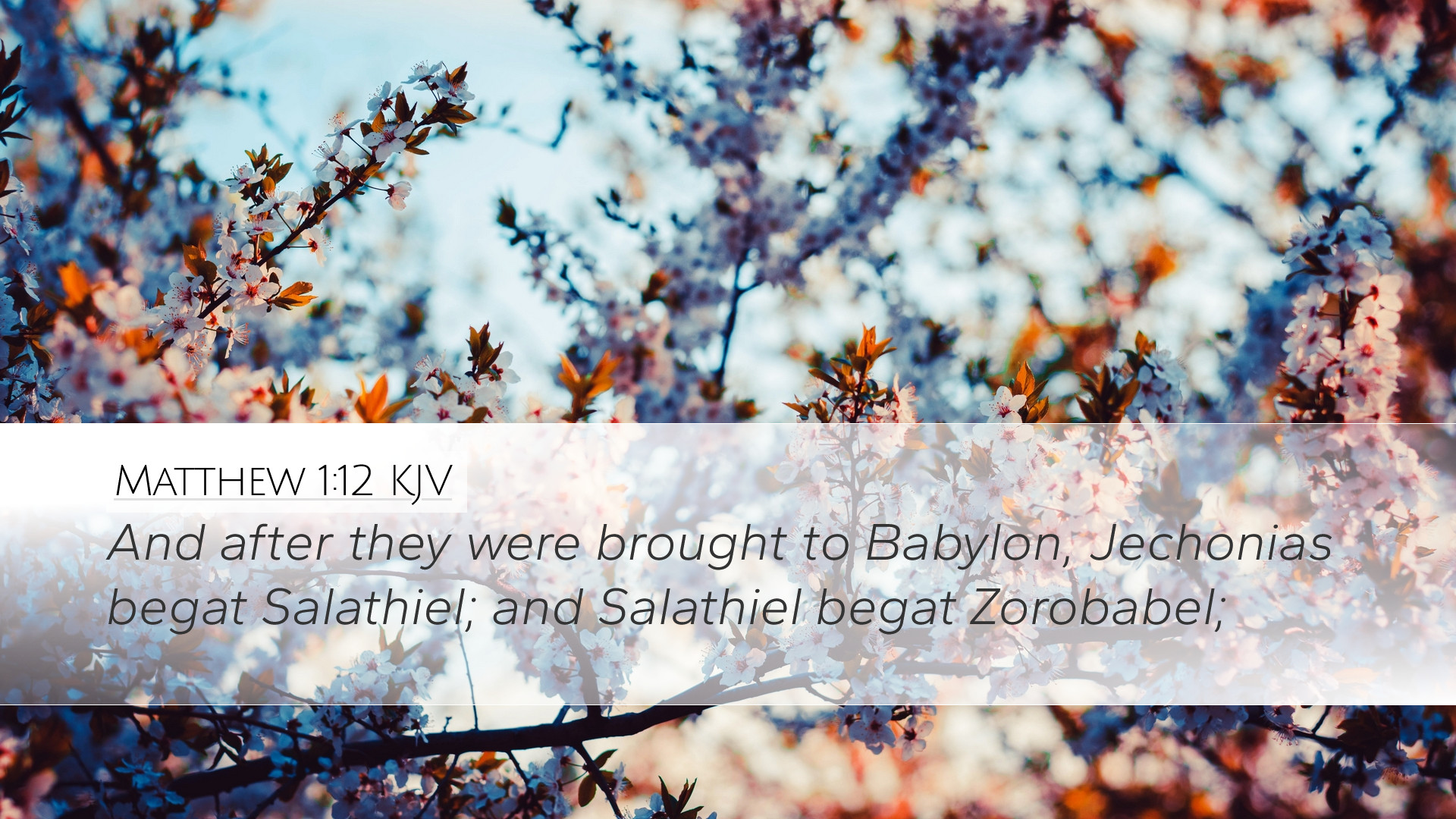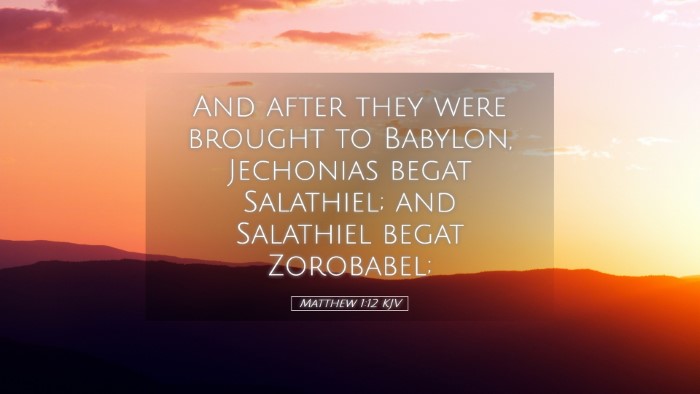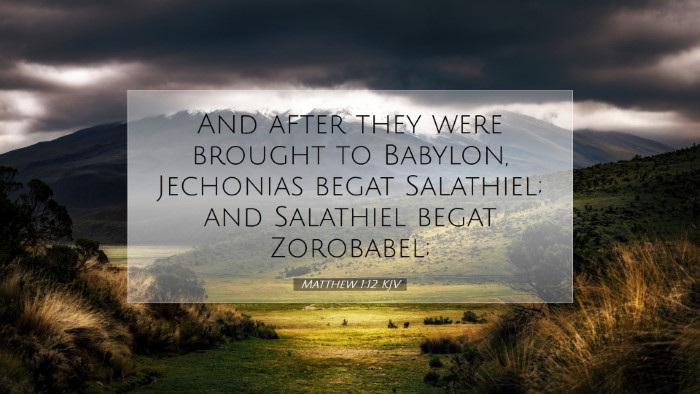Commentary on Matthew 1:12
Matthew 1:12 states, "And after they were brought to Babylon, Jeconiah begat Salathiel; and Salathiel begat Zorobabel." This verse is part of the genealogy of Jesus Christ and is significant not only to the lineage of Christ but also to the broader narrative of redemption and restoration in the Scriptures.
Context and Historical Significance
Matthew's genealogy is structured to highlight Jesus' rightful place in history and His fulfillment of Old Testament prophecies. The inclusion of Jeconiah and his descendants highlights God's sovereignty and grace, even amidst the judgment of exile.
-
Exile and Restoration: The mention of Babylon signifies a crucial turning point in Israel's history. Matthew alludes to the Babylonian exile, a period of great distress for the Jews. Yet, from this dark chapter, God orchestrated the lineage leading to the Messiah.
-
Jeconiah (Coniah): Jeconiah, also known as Jehoiachin, was taken into exile and represents both a failure and a promise. His reign ended tragically, yet through him comes the line of descendants who will ultimately lead to Christ.
-
Salathiel and Zorobabel: Following closely in Matthew's narrative, Salathiel was born during the post-exile period. Zorobabel became a key figure in the rebuilding of the Temple and the restoration of Jerusalem. Their inclusion speaks to God's faithfulness to His covenant people.
Theological Insights
The genealogy found in Matthew serves as a literary and theological framework emphasizing the continuity of God's plan of salvation through generations. Matthew Henry remarks that this lineage demonstrates how God “carried on His work by very unlikely instruments.” It affirms that Christ's coming was not through human achievements but through divine providence.
The significance of Jeconiah’s line speaks volumes regarding God's mercy. Adam Clarke notes that despite a curse placed upon Jeconiah (Jeremiah 22:30), God’s grace supersedes human frailty. This paradox is crucial for understanding that God's promises endure, even when they appear impossible.
The Implications for Ministry
For pastors and theologians today, Matthew 1:12 underscores the importance of preaching the whole counsel of God, encompassing both grace and judgment. The evangelical message is that from the wreckage of human disobedience, God brings restoration and new life—a timeless reminder for those in ministry to trust in God’s transformative power.
Practical Applications
-
Hope in Despair: Just as the Jews found hope in their genealogy, Christians today can find hope in even the most barren circumstances, knowing that God is at work in seemingly hopeless situations.
-
Connecting the Generations: The lineage of Jesus invites believers to consider their own spiritual heritage and the importance of passing faith from one generation to the next.
-
God’s Sovereignty: The intricacies of divine lineage remind us that God controls history and fulfills His promises. This should embolden believers to view current events through the lens of God's redemptive plan.
Conclusion
Matthew 1:12 serves not just as a genealogical record, but as an integral part of the biblical narrative that showcases God’s overarching plan to redeem humanity through Jesus Christ. The inclusion of Jeconiah and his descendants represents both judgment and grace, revealing the depths of God's love and mercy.


